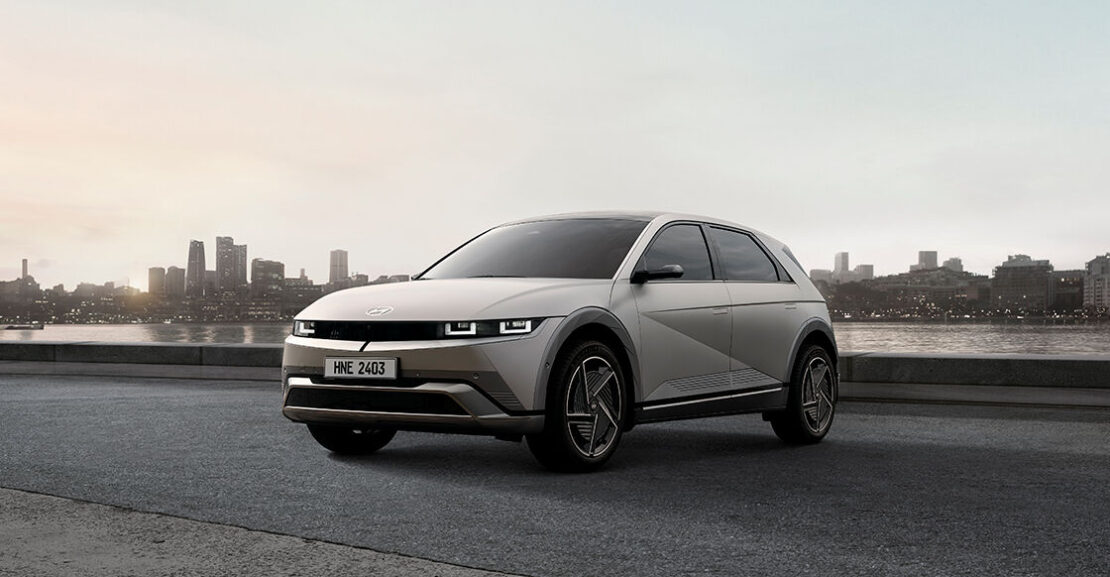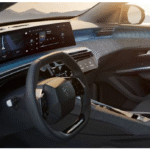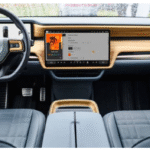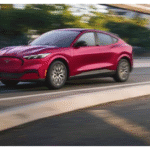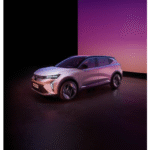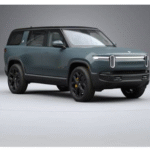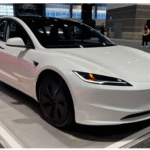Want to switch to an eco-friendly car but too intimidated by electric vehicles? A hybrid car is your answer. This guide is especially for you because in this article we will cover all about hybrid cars – how they work, their importance in the modern world and how they’re different from electric vehicles.
What Is a Hybrid Car?
In today’s world, the word ‘hybrid’ seems vaguely familiar when we hear someone talking about cars. The issue lies with our ambiguity in deciding the exact nature of hybrid cars, if they run on electricity, gas or something in between.
In simple words, hybrid cars have both. A regular gasoline engine as well as an electric motor. That’s it!
This combination allows hybrid cars to be far more fuel-efficient than traditional gasoline vehicles. When you’re cruising at low speeds or stuck in traffic, the electric motor often does most of the work, saving fuel and reducing emissions. When extra power is needed—like during acceleration or highway driving—the gasoline engine kicks in to support the electric motor, creating a smooth and efficient driving experience.
Two power sources, one vehicle. They work together, take turns, and basically have each other’s backs, depending on how and where you’re driving.
The Quick Breakdown: How Hybrids Actually Work
Let’s say you’re cruising through the city. You’re not in a rush, just moving gradually through traffic. That’s when the electric motor usually takes over—quietly, efficiently. That’s because electric motors excel at low speeds, while gasoline engines perform better when sustained power is needed. So, when you hit the highway or need to punch it uphill? The gas engine jumps in. Sometimes, they both team up. It’s all automatic—you won’t even feel the switch most of the time.
And when you hit the brakes, that energy doesn’t just vanish. The car stores some of it back into the battery (pretty smart, right?). This little trick is called regenerative braking, and it helps recharge the battery without plugging anything in.
Not All Hybrids Are Built the Same
Yeah, there’s more than one kind. Here’s the rundown in plain language:
HEV (Hybrid Electric Vehicle):

Basic Structure of HEV (Source: https://www.researchgate.net/figure/Basic-structure-of-different-EV-types-a-HEV-b-PHEV-c-PEV_fig2_370115857)
Combines an internal combustion engine with a small electric motor and battery. The battery charges through regenerative braking and engine power. Cannot be plugged in or run purely on electricity for long.
PHEV (Plug-in Hybrid Electric Vehicle):

Basic Structure of PHEV (Source: https://www.researchgate.net/figure/Basic-structure-of-different-EV-types-a-HEV-b-PHEV-c-PEV_fig2_370115857)Features a larger battery and can be charged externally. Can drive short distances on electric power alone before switching to the fuel engine. Offers flexibility for both city and long-distance driving.
PEV (Pure Electric Vehicle):
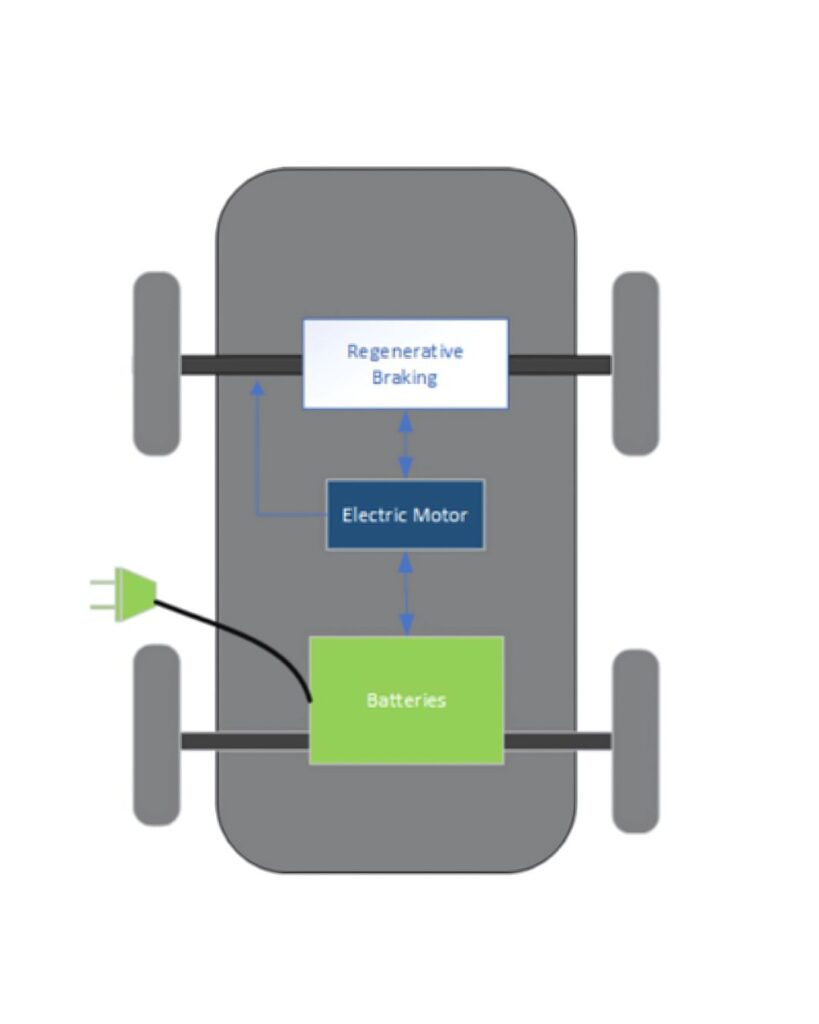
Basic Structure of PEV (Source: https://www.researchgate.net/figure/Basic-structure-of-different-EV-types-a-HEV-b-PHEV-c-PEV_fig2_370115857)
Runs entirely on electricity using a large rechargeable battery. Has no fuel engine and produces zero emissions. Needs regular charging through home or public EV stations.
Wait—Are Hybrids the Same as Electric Cars?
Not completely. They’re siblings, not twins.
Fully electric vehicles (EVs), as the name suggests, run on electricity. They’ve got big batteries and need to be charged regularly. Hybrids, on the other hand, still sip gas—just not as much.
Here’s how they compare:

So… Are Hybrids Technically Electric Cars?
Sort of. They’re part of the bigger EV family, but they’re more like the halfway point. You’ve got:
- HEVs – Hybrids, no plug, self-charging.
- PHEVs – Plug-in hybrids, partial electric range.
- BEVs – Full battery-electric vehicles, no gas at all.
So yeah, hybrids are electric ish—but if your goal is zero emissions, you’ll need to go full EV.
Pros and Cons: Should You Actually Get One?
Let’s keep it real. Hybrid cars have their ups and downs.
What You’ll Probably Like:
- Better mileage than regular gas cars
- Lower emissions (yay, environment!)
- No plug needed unless it’s a PHEV
- Usually cheaper than full EVs
- Good for city driving
What Might Bug You:
- Still burns fuel
- Upfront price can be higher
- Repairs might cost more (dual systems)
In short? They’re a solid middle-ground choice—great if you’re not ready to fully commit to the electric life.
Living Somewhere in Asia? Hybrids Make Even More Sense
Here’s why:
- Charging stations? Rare.
- Electricity? Not always cheap—or reliable.
- Gas? Everywhere.
So if you’re in South Asia or anywhere with similar infrastructure, a hybrid is kind of perfect. It lets you cut down on fuel use without worrying about where your next charge is coming from.
What About the Batteries? Do They Last?
Short answer: yes. Most hybrid batteries are built to go the distance—8 to 15 years or over 100,000 miles. And car companies like Toyota, Hyundai, and Honda usually toss in solid warranties for peace of mind.
Also, hybrid batteries are smaller and cheaper to replace than fully electric ones.
Hot Hybrid Picks in 2025
If you’re shopping around, check these out:
- Honda Accord Hybrid – It’s smooth, classy, and sips fuel like a pro.
- Hyundai Ioniq Plug-in Hybrid – Smart, easy to plug in, and feels modern.
- Ford Escape Hybrid – Plenty of space and works well for everyday stuff.
- Kia Niro Hybrid – Cool-looking, simple to drive, and wallet-friendly.
These cars hit that sweet spot—good performance, better fuel use, and you don’t have to deal with the full electric car charging life just yet.
Hybrid vs Electric Cars: What Fits You Best?
Thinking of going greener with your next ride? Hybrid cars and EVs are both in the spotlight right now. And honestly, both have their perks. But figuring out which one really fits your lifestyle? That’s where it gets a bit tricky. Let’s break it down simply—no tech lingo, just what matters day-to-day.
Everyday Driving: What’s Less of a Hassle?
Hybrids keep things pretty easy. You just fill them up at the pump like always, and the car does its own thing, switching between gas and electric when it needs to. Plug-in hybrids go a step further—you can cruise around town on battery power, then lean on gas for longer trips.
Electric vehicles work great if your daily drive is predictable. Commute, run errands, plug in overnight—boom, done. But if you’re the road trip type or just drive a lot in general, figuring out where and when to charge is an added hassle.
How They Feel to Drive
Electric cars feel different—quiet, no shifting, instant acceleration. It’s kind of like driving a smartphone on wheels. Hybrids feel more familiar. They still hum along like a regular car, just with the occasional silent glide when the electric motor kicks in.
Which One’s Right for You?
That depends on your lifestyle more than anything. Not ready to go fully electric? Don’t have a charger at home? Hybrid’s a solid middle ground. But if you’re all about zero tailpipe emissions, love the quiet techy vibe, and have charging sorted out, EVs are a great move.
Bottom line? Both are solid. There’s no wrong pick—it just comes down to what fits your life best.
Thinking About Buying a Hybrid in 2025?
Ask yourself:
- Do I drive long distances?
- Is home or workplace charging not possible?
- Am I trying to save fuel—but not quite ready to invest in an electric car just yet?
If you found yourself saying “yeah, that sounds like me,” then a hybrid could be the perfect fit.
With fuel prices creeping up and clean air rules getting stricter, hybrids are starting to make a lot of sense.
What’s the Future Looking Like for Hybrids?
Hybrids aren’t fading out anytime soon. While fully electric vehicles are grabbing headlines, hybrids are still going strong—especially in places where plugging in isn’t always an option. Some industry folks even believe hybrid sales might stay ahead of electric vehicles in certain parts of the world.
So, if you’re after something that’s smarter than a gas-only car but doesn’t need you to fully commit to electric, a hybrid hits the sweet spot.
Final Thoughts: Drive Smarter, Not Harder
You don’t have to jump straight into the electric future. A hybrid is a great way to ease in, without stressing over charging stations or major lifestyle changes.
No need to be a car expert. No need for a home charging setup. Just a ride that saves you fuel, treats the planet a bit better, and doesn’t complicate your life.
Still unsure if a hybrid is the way to go?
Try one out. It just might be the upgrade you’ve been waiting for.
